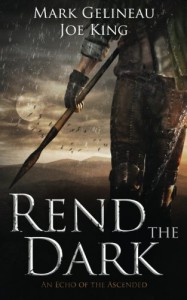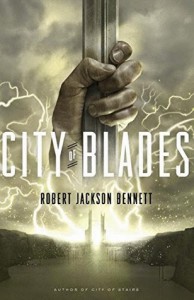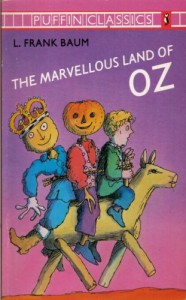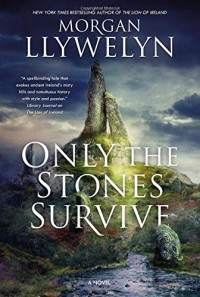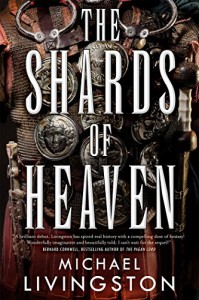
Immediately after finishing this novel, I rated it 3.5 star. Now, after mulling it over for a few weeks, I'm downgrading that to a 2.5 star rating for reasons to be explained.
A Crown for Cold Silver was a book seemingly tailor made for my tastes; a grimdark-esque, epic fantasy which throws you directly into a complex story, demanding that you quickly acclimate yourself to the setting and characters, as multiple points of view are used to create a rich, new world filled with unique races, strange cultures, and a deep history. At least, that is how I envisioned it. And for the first two-thirds of the novel, I enjoyed Alex Marshall’s first foray into the Crimson Empire well enough, but then the negative elements of the story overcame the positives, sending my enjoyment of the narrative into a nosedive until it eventually crumbled into oblivion after a very disappointing ending. I’ll explain why in a moment. First, let me describe the set up of this fantasy tale.
A few decades ago, a tough-as-nails revolutionary called Cold Cobalt aka the Banshee with a Blade and the First Among Villains lead her Five Villains and their home grown army across the Crimson Empire, fighting to destroy the monarchy and uplift the downtrodden people. And through skill, trickery, and pure luck, Cold Cobalt succeeded in her coup and crowned herself Queen Zosia of the Crimson Empire. May her enlightened reign last forever!
Only one problem: Zosia didn’t particularly like being queen. She found the politics and constant scheming by the remaining nobility and the Black Pope (leader of the Burnished Chain religion) insanely annoying, and when her idealistic dreams for social reform and uniform justice for all began to fail, she did what she did best: She challenged someone to a duel to the death, winner take the Empire.
In the years since Queen Zosia lost that duel, the Crimson Empire has been in perpetual turmoil. The current Queen and Black Pope fighting a bloody civil war (which has only recently ended); Zosia’s Five Villains taking part for a while before disappearing from the world stage; and the commoners whom Cold Cobalt sought to aid finding themselves beaten down more than ever. Out of this chaos, a new revolutionary movement has arisen, proclaiming in pamphlets and graffiti that ‘Zosia Lives!’
Far away from the social unrest and brewing revolution lies an isolated mountain hamlet. The people there are poor but proud, and they have avoided the civil wars, paid taxes to which ever side demanded them. When a regiment of troops arrive unexpected, they do not come for cows or goats or crops, but for blood; their mission to send a message to someone; someone they do not even know. Their subsequent acts of horrible savagery shattering the idyllic life of an aging character, who is then driven from the shadows of domestic bliss, forced to charge out into an unfamiliar world seeking bloody revenge, looking for old friends and allies, and desperately trying to recapture the old magic which once came so easy. This individual never suspecting that the war to determined the fate of the Crimson Empire – and the very world — has already begun!
Well, it sounds pretty damn good when I describe it like that, right?
And A Crown for Cold Silver did start out great. At least, in my eyes, it did.. The beginning chapters quickly and effortlessly capturing the trauma and determination of our main character. The writing style, the prose, was amazing, detailed yet crisp, leading me to favorably compare the book to one of my favorites: George R.R. Martin’s Mi>A Game of Thrones. Needless to say, I believed great things awaited me among the pages of this grimdark-esque fantasy.
Then things began to happen. Small missteps really. But they began to add up quickly. Soon, enough had arisen that I felt frustration take hold of me. Eventually, there were so many issues I had to encourage myself to finish the story. And, now, I find it difficult to write this review, because I know the negatives will greatly outstrip the positives, and I really hate to speak negatively about a writer’s work. Obviously, I can and have done so, but I don’t enjoy it; it doesn’t make me feel good. Since I’m a reviewer by choice, however, I feel it only fair to let people know the issues I had with A Crown for Cold Silver, and then they can decide for themselves if they agree or disagree with me.
First, the story was too slow. In sections, it literally crawled. I blame this on too many points of view. We go from a handful at the beginning to a plethora of characters by the end. While it certainly isn’t unusual for an epic fantasy to have multiple characters, A Crown for Cold Silver really over did it, causing the story of each person to really stagnate, as they waited for their time in the spotlight. Sure, there was a minor amount of character development, but not nearly enough considering the length of this novel.
Second, I never connected with any of the characters. Let me talk about main and supporting characters separately. Please understand that I’m using those designations loosely, because there were so many point of view characters it is difficult to pin down who the lead actually was.
For my part, I assumed the “main” character was the old-badass-coming-out-of-retirement-to-get-revenge. Naturally, I envisioned significant character development as this person dealt with a huge personal tragedy, reconnected with old friends, faced previous enemies, tried to fit into a different world, and schemed for revenge. What I got wasn’t even close. The character never developed after an amazing opening introduction. Instead, this person traveled around telling everyone “Hey, I’m a badass!” rather than actually doing anything remotely badass, then spent the rest of the time being made a fool of by lesser characters, propositioning sex from any girl who gets close for more than 5 seconds, and reminiscing about smoking, drugs, sex, and the epic skill of pipe carving. (Yes, pipe carving seems to be a big thing.) Honestly, by the end of the story, I really did not like this person at all, nor did I care if they lived or died.
As for the “supporting” characters, they were a mixed bag, but the one constant was that they were fairly unlikeable. One of them is a recovering drug addict who is a repetitive screw up, but he never seem to learn from his mistakes; another is a young man (Think Saul Silver from the moviePineapple Express) who wants to find his way in the world, but never knows how to do anything except smoke “weed”; a third is a young princess determined to prove her maturity by acting like a brat most of the time, smoking “weed”, sleeping with whomever she pleases, and refusing to listen to anyone older than thirty; and another is a religious warrior whose deformities and magical abilities mark her as a freak, but who deals with her outcast status by satisfying her sexual fetishes at every opportunity. Perhaps it is just me, but none of these guys were the least bit compelling, amusing, or complex, nor do they grow or develop at all. There were several other minor characters mixed in with these, but none of them really amounted to much other than being moving scenery.
Third, the plot twists began to loose their “WOW!” factor after a while. Twists and turns, shocks and surprises, they are part of what makes a story great. But they have to be used sparingly, or they become pretty meh. I mean, honestly, hasn’t George R.R. Martin’s tendency to kill every Stark . . . uh, I mean, main character gotten fairly pedestrian after five books? It has to me anyway, because I know it is going to happen, so there really isn’t a big “WOW!” moment, but rather an “Oh, that again” moment. And that is how I felt inCrown, because every few chapters there was another revelation about this character being someone else or this character having a hidden motive. After the third time of someone taking their helmet off and saying “Look I’m not really John Doe; I’m Jim Doe!” I just began to roll my eyes.
Fourth, the supposed gender equality. I’m all for gender equality. Strong men, strong women. Nothing better than two equals dealing with one another. Sure, some characters will be stronger than others, but no Richard Rahl-like supermen in a 2015 fantasy books, right? And I was really hopeful Crown was going to deliver a world without gender inequality. What Alex Marshall does, however, is merely replace the dominate man of yesteryears with a dominant woman and proudly declare, “Look, look, gender equality has been delivered.” I really hate to point this out, but that isn’t gender equality, merely role reversal, and it isn’t anything but a female power fantasy, the same as old school fantasy was all about male power fantasies. I mean, this is the twenty-first century, and our gender equality is a woman rescuing a male prostitute from the whorehouse and marrying him – because he is so good in bed? Or, maybe, it is a female head of household with a mustache, smoking a pipe, and ordering everyone around while her husband isn’t referred to at all – except as a sperm donor? Perhaps, it is another female who is betting on whether – she can get a certain man in bed? Or the female warriors being more skilled, more deadly, more clever, more everything than their male counterparts – even their so called equals? It goes on and on. Yay, fantasy gender equality. Ain’t it so original. Just change “he” to “she” in any story, and it is now gender equal, because our hero is Ricki Rahl, not Richard Rahl!
Fifth, the world building turned into a hodgepodge of real world cultures pieced together rather than a new, fresh world. Every culture in this book can be easily matched with its real world counterpart. The Burnished Chain and its Black Pope are so clearly a fantasy version of the Catholic Church and the Pope that it isn’t really funny. One country has Korean names and a Korean culture. Another has Indian names and Indian cultural references. It goes on and on. Some reviewers have labeled this tendency by Alex Marshall to just pick up and place real world cultures into the story without modifying them at all (except for gender equality and diversity modifications, of course) a “linguistic short-cut” to allow the author to have full grown and familiar cultures without having to bog a reader down in world building, and I can understand that, but I don’t like it. I have had issues with Glen Cook doing this same thing in his Instrumentalities of the Night series, which is so clearly thirteenth century Europe that it almost reads like historical fiction, and if I’m not willing to let my favorite fantasy author get away with it, I’m not overlooking this tendency by pseudonym Alex Marshall.
Sixth, diversity. I always get bashed, insulted, and generally trolled for pointing this out, but diversity means that lots of different lifestyles are portrayed in a story. That is diversity. Saying a story is diverse when every character is a bisexual and is promiscuous is like arguing that Lord of the Rings was diverse when every single person in the story is a heterosexual in a married relationship. It just isn’t true, and it is downright silly for you to argue that it is. And, unfortunately, Alex Marshall chose to follow the current discriminatory pattern of non-diversity by filling this tale with gender-swapped house-husbands, mustached female husbands, overpowered female warriors, weak and stupid men, and a world where every single person whose sexual preference is mentioned is bisexual. Guess that is our current excepted form of diversity: no heteros. Damn, seems eerily similar to years ago when no one could be homosexual in a fantasy, doesn’t it?
Seventh, the ending left me underwhelmed. I’m struggling to find the right words without giving away spoilers, so with that in mind, I’ll merely say the conclusion was rather stale and blah. The buildup to the confrontation wasn’t especially riveting; I wasn’t given any reason to care which side won; the foreshadowing for the first big “WOW!” moment (Oh, yes, there are two.) didn’t peak my interest very much; and when the characters were in danger, I didn’t care if they lived or died, because I’d been given no reason to like them. Even the second big “WOW!” moment, which was suppose to set up the next book, was fairly ho-hum.
Honestly, this novel is a real paradox to me. It is a story which I enjoyed immensely at the beginning, comparing it favorably to George R.R. Martin’s A Game of Thrones, then gradually lost patience with as it grew less and less compelling until now (after several weeks of mulling it over before writing this review) I’m struggle to find more than one good quality (The prose is wonderful.) to praise. Weird, I know. I feel the exact same way. But that is exactly where I find myself. So, as for the question of whether you should give A Crown for Cold Silver a try, all I can suggest is you read lots of reviews (both good and bad) and make an educated decision based on what you enjoy reading, because, as I type this, I have no idea if I will continue with this series or not. Take that for what it is worth.
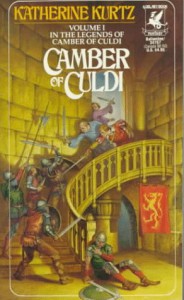
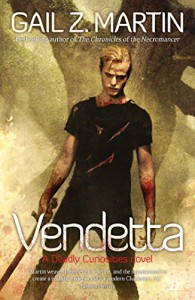

 2
2
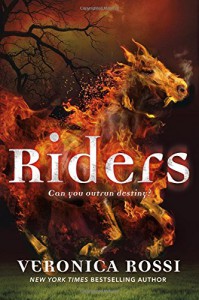


 2
2
